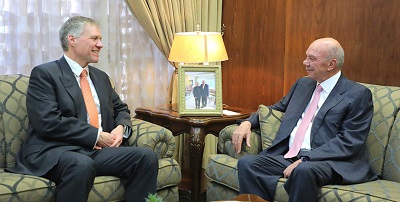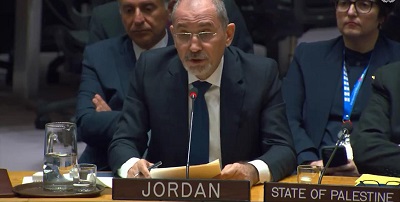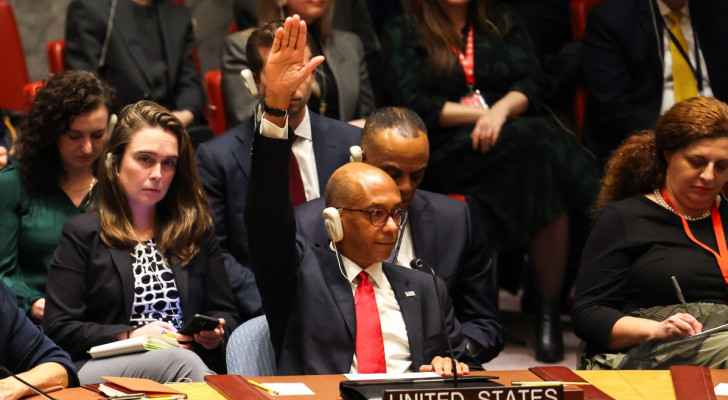Why decent work is essential to achieving the 2030 Agenda - By Rasha Salman, The Jordan Times
When thinking of development, one’s mind tends to visualise industrial and economic progress and increases in wealth. While those are essential in driving development, recent development discourse has also emphasised the human element, one that focuses on people’s well-being and dignity in addition to economic well-being.
Within that vein, the 2030 Agenda for Sustainable Development, a world-wide “plan of action for people, planet and prosperity” was launched in September 2015 with the pledge of “leaving no one behind”. The agenda resolves to “free the human race from the tyranny of poverty”, and “to ensure that all human beings can fulfil their potential in dignity and equality and in a healthy environment”. It outlines these ambitions in 17 Sustainable Development Goals (SDGs) that cover all aspects of human development, including people’s standard of life, education, health, equality, employment, housing, water, energy, climate, peace and social justice among others.
Out of the 17 SDGs, a specific goal has been allocated to address the aspect of human development through economic empowerment and improving the quality of life for everyone, particularly the marginalised. Hence, SDG 8 aims to “promote sustained, inclusive and sustainable economic growth, full and productive employment and decent work for all”. Goal 8 targets issues such as increasing labour productivity, reducing the unemployment rate, especially for young people, and improving access to financial services and benefits. It addresses security in the workplace and social protection for families, in addition to better prospects for personal development and social integration, among others.
According to the United Nations Development Programme, over the past 25 years, the number of workers living in extreme poverty has declined dramatically. In developing countries, 34 per cent of employment comes from the middle class, a number that has almost tripled between 1991 and 2015. However, average annual growth rate, particularly in the least developed countries has been decelerating, from 7.1 per cent in 2005-2009 to 4.9 per cent in 2010-2015, and we are seeing widening inequalities, with the job market unable to keep up with entrants. According to the International Labour Organisation, more than 204 million people were unemployed in 2015.
Of particular importance is youth unemployment, the World Bank estimates that 42 per cent of the world labour force is under the age of 25, and 60 per cent of young people aged 15-24 worldwide are jobless. In the Middle East and North Africa region, less than 25 per cent of young people are employed. Moreover, in more than 76 per cent of countries with data, more than one in 10 youth are neither in the educational system nor working, especially young women.
Women are still less likely to participate in the labour force, and more likely to take the worst jobs in it; insecure, unsafe and poorly paid jobs, inclusive growth remains far out of reach, according to UN Women. Globally, only 63 per cent of women aged 25 to 54 are in the labour force compared to 94 per cent of men of the same age. At current rates of change, the gender gap, which stands at 23 per cent globally, will not close until 2086, or possibly beyond, says UN Women.
These challenges call us all to take the 2030 Agenda for Sustainable Development seriously, and to attempt all we can to contribute to its fulfillment. SDG 8 attempts to tackle these challenges, while ensuring inclusiveness, equality and dignity. UN Secretary General António Guterres emphasised the importance of overcoming challenges and achieving sustainable development, saying that human dignity will be “the core” of his work.
Latest News
 Senate president, British ambassador discuss strategic partnership, regional stability
Senate president, British ambassador discuss strategic partnership, regional stability Jordan urges UN to recognise Palestine as state
Jordan urges UN to recognise Palestine as state Safadi, Iranian counterpart discuss war on Gaza, regional escalation
Safadi, Iranian counterpart discuss war on Gaza, regional escalation US vetoes Security Council resolution on full Palestinian UN membership
US vetoes Security Council resolution on full Palestinian UN membership King, Bahrain monarch stress need to maintain Arab coordination
King, Bahrain monarch stress need to maintain Arab coordination
Most Read Articles
- Jordan urges UN to recognise Palestine as state
- Senate president, British ambassador discuss strategic partnership, regional stability
- JAF carries out seven more airdrops of aid into Gaza
- Safadi, Iranian counterpart discuss war on Gaza, regional escalation
- Temperatures to near 40 degree mark next week in Jordan
- US vetoes Security Council resolution on full Palestinian UN membership
- UN chief warns Mideast on brink of ‘full-scale regional conflict’
- Biden urges Congress to pass 'pivotal' Ukraine, Israel war aid
- Google fires 28 employees for protesting $1.2 billion cloud deal with “Israeli” army
- Israeli Occupation strike inside Iran responds to Tehran's provocation, reports say